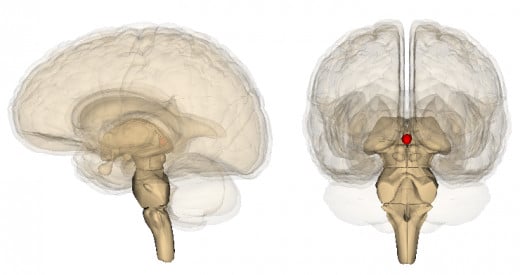Astrology and the Melatonin Hormone

What can astrology tell us?
To scientists, astrology is regarded as a puerile ancestor to scientific methodology. When astrologers attribute psychological dispositions to planetary locomotion, they are making groundless assumptions that would be more at home in a religious sermon. However, farcical explanations are no reason to dismiss the veracity of the preceding observations.
It may be that there are times in the year when babies are born with particular personality profiles. If this were the case, the findings of astrologers could provide a useful starting point for neuroscientists to unravel a more lucid account of the phenomenon. It is the purpose of this article to show why such an endeavor could prove fruitful.
The melatonin hormone
Melatonin is a powerful hormone that is secreted by the human brain. The diversity of its application is astonishing, with potential uses including the treatment of obesity, Alzheimer's, epilepsy and cancer. According to Professor Reiter of the UT Health Science Center, “melatonin likely functions in every cell with which it comes in contact”. For example, experiments show that melatonin can reduce body weight and fat levels in animals by increasing the metabolic rate. It does this by generating heat in the body through chemical reactions.
Recent Melatonin Research

Of present interest is the seasonal variation in melatonin levels that we all undergo during the year. Nicknamed the “hormone of darkness”, melatonin is produced in the pineal gland, which is linked to the retina of the eye. Its production is inhibited by light, with peak emission of the hormone occurring in the middle of the night. A dose of melatonin can therefore reduce sleep onset latency; successfully treating a number of sleep disorders that contribute to seasonal affective disorder (a mood disorder causing depressive symptoms in the winter months).
Melatonin is copiously produced during wintertime. Shorter days and an increase in cloud cover see a reduction in daylight, and less distinction between night and day. Treatment for seasonal affective disorder involves providing melatonin doses that regulate levels to their expected amount for the time of day. Given the effectiveness of this treatment, it is clear that melatonin levels vary substantially and predictably for all normal individuals during the year.
A scientific basis for astrology
During pregnancy, hormones and neurotransmitters within the mother's bloodstream will travel through the placenta into the developing brain of the fetus. It is well documented that drug use in mothers will cause drug addiction in the unborn child, but the impact of hormones such as melatonin has been researched much less.
However, there are examples of other, less reactive hormones that can create personality dispositions in the fetus. Prolonged exposure of a fetus to stress hormones from the mother can cause the fetuses brain to develop a lasting fight-or-flight mentality. Similarly, the works of Thomas Verny (1981) and David Chamberlain (1988) show that personality may be formed in the womb under the influence of chemicals within the mother’s blood.
Given the presence of melatonin in pregnant mothers, and the likelihood that it will interact with the fetus, it can be suggested that the brain development of human fetuses may be affected by melatonin levels in the mother's bloodstream, leading to particular personality dispositions or disorders. As pregnant mothers will all experience similar fluctuations in their melatonin levels throughout the year, a rather profound conclusion can be drawn. Children born within the same month will experience the same levels of melatonin in the womb when their brains are developing the same neural processes. In other words, it is possible that children born within the same month will have the same susceptibility to particular personality profiles, traits, or disorders.

Could astrological observations be useful to scientists studying personality?
Shaping our personality
Thousands of years ago when astrology was in its infancy, there was no such thing as the 'scientific method'. With the development of science, astrological explanations for psychological phenomena have been rightly ridiculed, but the observations that led to those explanations have been wrongly dismissed. Any apparent trend in personality profiles should be investigated.
This article couples the observations of astrologers with an explanatory scientific theory. Melatonin can potentially interact with the brain development of a human fetus during pregnancy to produce particular personality profiles. In all individuals, melatonin levels will vary cyclically during the year, meaning this hormone could be responsible for the psychological observations recorded by astrologers.
Astrologers may be far happier with their stars and signs. Scientists may even repudiate the theory through an entrenched ridicule of astrology. Indeed, one could make the case that brain development in the womb has a negligible effect on personality in later life, and while I agree that postnatal environment plays a large role in personality; prenatal environment has been shown to be just as important. It is likely that a combination of prenatal and postnatal effects are in play, where the foundations for later formative personality development are laid within the womb, leading to predictable but not all-encompassing trends in personality.
Melatonin is not the only hormone that can be used to predict personality, but it may be the only one that can unite astrology with science. So is astrology scientific? No, but it can be reluctantly integrated with science by exploring the novel approach delineated in this work.



